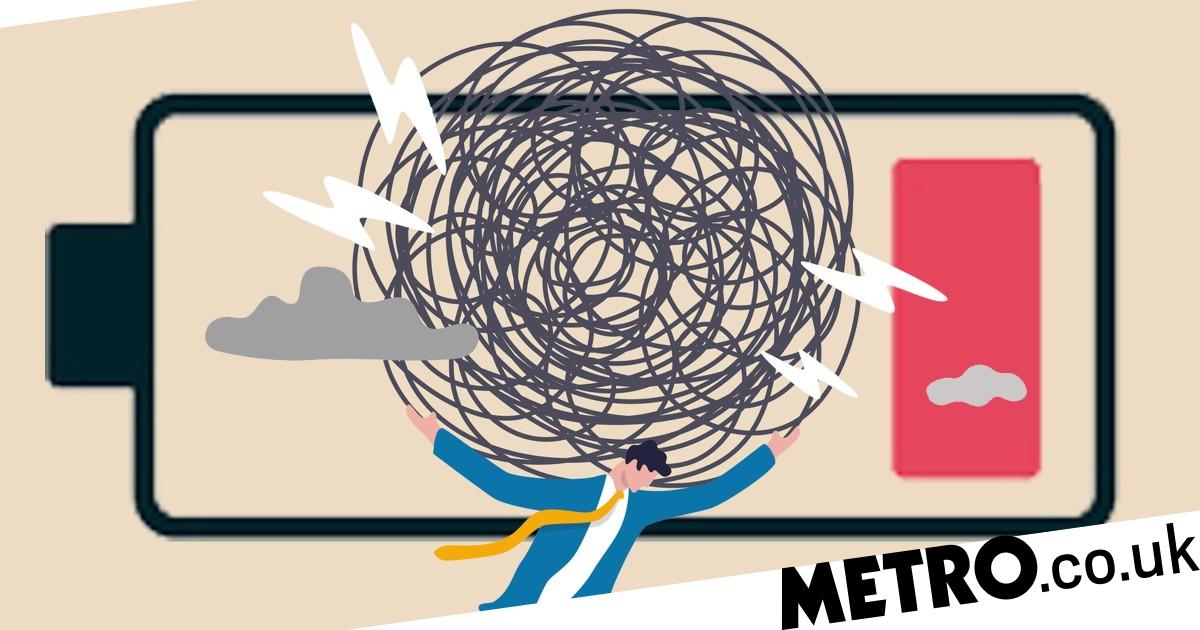
Emmy, a 24-year-old journalist based in London, was only a few days into a new job when her hair began to fall out.
She was working ‘crazy long hours’ with a new team that was far from welcoming, she says. On top of this, her manager had a short fuse and she was constantly made to feel replaceable.
The stress of this chaotic workplace began to build, and she attributed this to triggering her sudden hair loss.
‘Eventually, I lost a good 40% of my hair due to stress and, while I’ve always had insomnia, during this period I was grabbing maybe three hours of sleep on average each night,’ Emmy tells Metro.co.uk.
She continues: ‘My depression and anxiety were also quite bad. I was crying practically everyday, usually on the tube during my morning commute.
‘When I’m in a more anxious state, I sometimes get so worked up that I throw up, which was happening a lot.
‘I was basically a balding, sick zombie.’
This is an example of work-related stress becoming so severe that it causes physical symptoms – something that has affected a third of the workforce according to research by employment website Indeed.
The survey, which was part of Indeed’s Work Happiness Score, found that nearly three-quarters of Brits (72%) feel workplace unhappiness has negatively impacted their wellbeing.
For one in three, this led to physical symptoms such as headaches and migraines and insomnia.
How can stress make you ill?
According to the NHS, when you’re feeling anxious, scared or out of control, your body releases stress hormones such as adrenaline and cortisol.
In small doses these hormones can help motivate us, but too much can lead to problems.
‘Stress can show up differently for different people,’ says BACP accredited counsellor and psychotherapist Katerina Georgiou.
‘This could be anything from raised heart rate, rapid breathing and tense muscles to insomnia, migraines, anxiety, or longer term issues like IBS and cardiovascular problems.
‘Though people might sometimes find there is a pattern in where they consistently hold or express their stress, for example, they might always come out in the same rash.’

Numerous studies have shown that stress can cause fatigue, insomnia and even trigger depression in some people.
High cortisol levels caused by stress can also lead to hair loss and can cause periods to stop.
For Beatrice, a London-based Business Storytelling Coach in her mid-thirties, work-related stress caused her to suffer with intense migraines and lose her period.
She says: ‘I had ignored all signs, such as fatigue, irritability and overwhelm, until I realised I hadn’t had my period.
‘Being self-employed and passionate about what I do, I found it hard to stop working.
‘Also, as a parent and business owner you often feel like if you stop everything stops: organisation, income, clients work – and this is true to some extent.’
It was only when Beatrice took a step back from work by hiring an assistant, upping her rates (so that she could work less and still earn enough money), and setting boundaries with her clients that she began to feel healthy again.
Since learning about the link between work, stress, and menstrual cycles, Beatrice has been able to give her body what it needs – and says she hasn’t missed a period since.
How to prevent work-related stress
According to Katerina, setting boundaries between your work and non-work life is vital.
Yet she highlights, too, that ‘it’s important to start factoring in self care before things get visibly stressful.’
She tells Metro.co.uk: ‘It’s not always possible for everyone, but things like ensuring you always take a proper lunch break – and at least a full day or two each week where you don’t work – is so crucial.
‘Taking time off for a holiday, even if it’s a few days and you don’t actually go anywhere, is important, and if you can get away for a proper break then do.
‘If your hours are erratic, or taking time off is just not possible for you, try adding fun and calming activities around your workload: see your friends, go for that cup of tea.’
But sometimes these things are out of our control, especially when, like Emmy, you’re at the whims of targets and managers. In these cases, it’s best to know where your employer’s responsibilities lie.
Source: Read Full Article
